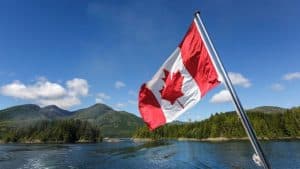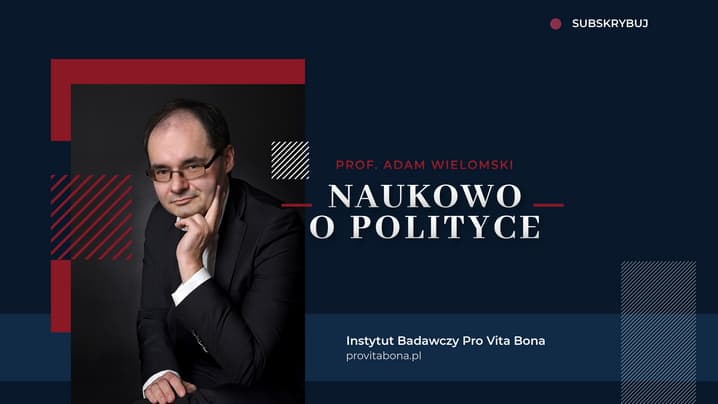“Third parties” in Canada – updated to 2022 (Part Two)
Interestingly enough, some of the most significant “third parties” have existed in Quebec.
A major Quebec-nationalist (but also Catholic-traditionalist) party that flourished on the provincial level in Quebec before 1960 was the Union Nationale. The party and the province was led for decades by Maurice Duplessis – a figure somewhat similar to U.S. “strongman” Huey Long – who was called “Le Chef”. Duplessis had (in 1948) given Quebec its distinctive, traditional-looking flag – the blue cross with the Bourbon lilies. Duplessis’ support for the Diefenbaker Conservatives in the 1958 federal election led to Diefenbaker winning one of the largest majorities in Canadian history – but Diefenbaker was simply unable to make the support from Quebec more permanent.
There was also the death of a promising young leader of the Union Nationale in a car-accident – who could have perhaps eventually become Canada’s first French-Canadian conservative Prime Minister. The Union Nationale largely disintegrated after his death, and the triumphant Quebec Liberals subsequently enacted the so-called “Quiet Revolution” – a widespread secularization of Quebec life.

The Ralliement creditiste, which existed in various embodiments at the federal and provincial levels in Quebec, was sometimes together with, and sometimes apart from, the Social Credit Party of Canada. The Ralliement’s main leader was Real Caouette. In the 1962 federal election, the Ralliement won 26 seats in Quebec, while the Social Credit Party won only four seats in English-speaking Canada. The unwillingness of the English-Canadian leadership of the Social Credit Party to allow Real Caouette to lead the whole party, resulted in a split in 1963. Although some years later, Real Caouette became the leader of the whole party, by that time it had lost all of its federal seats in English-speaking Canada.
There have been as well the separatists (or sovereigntists) in Quebec — called the Parti Quebecois (PQ) in the province, and the Bloc Quebecois (BQ) in the federal Parliament. The PQ has frequently formed the government of Quebec – and has been able to shepherd through two referendums on sovereignty, in 1980 (strictly-speaking, a referendum on “sovereignty-association”) and in 1995. The 1995 referendum came very close to success.
The Bloc Quebecois had largely won most of the Quebec vote (obviously, they ran candidates only in Quebec) in the federal elections of 1993 to 2008. However, in the 2011 federal election, they were routed by the NDP – winning only 4 seats. The Quebec triumph of the NDP in the 2011 federal election (winning 59 of 75 seats) – especially in regard to the victories of some very young and inexperienced candidates – is difficult to adequately explain. In the 2015 federal election in the province of Quebec, NDP support was greatly reduced, and the Bloc Quebecois was able to win 10 seats. However, in the 2019 federal election, the Bloc Quebecois enjoyed a resurgence, winning 32 seats. In the 2021 federal election, they won 32 seats.
In recent years, there was also a somewhat more conservative provincial party in the province of Quebec called the Action democratique du Quebec (ADQ) (although it virtually collapsed in the 2008 Quebec provincial election) – which had tended to support the Conservatives federally.
There has now arisen a centre/centre-right third party in Quebec, the Coalition Avenir Quebec (CAQ) into which the ADQ has folded itself.
In the October 1, 2018 provincial election, the CAQ was able to win a strong majority of 74 of 125 seats, while the Liberals were reduced to 32 seats, and the very left-wing Quebec solidaire won 10 seats, ahead of the Parti Quebecois, which was reduced to 9 seats. This was a truly historic election.
The Conservatives/Progressive Conservatives had disappeared from provincial politics in Quebec many decades ago. However, in very recent times, the Conservative Party of Quebec has attracted some support. At the federal level, the support of Quebec voters for the Conservatives/Progressive Conservatives was fitful and sporadic. In the enormously important federal elections from 1963 to 1980, the Progressive Conservatives were usually barely able to win one or two seats in Quebec. The Liberal majority in the federal Parliament, especially under Pierre Trudeau, was heavily based on holding nearly every seat from Quebec. One of Brian Mulroney’s great successes was the huge support the Progressive Conservatives received from Quebec voters in the 1984 and 1988 federal elections. It was a success, however, that did not last into the 1993 federal election.
There is also now a very left-wing party in Quebec, called Quebec solidaire, which holds ten seats in the Quebec legislature.
Between 1989-1994, the Equality Party held four seats in the Quebec legislature. They were representatives of the province’s Anglophones (i.e., the English-speaking minority, which is mostly centered in West Montreal and the so-called Eastern Townships) (which are actually in the western part of the province of Quebec). The latter term is derived from the fact that these were the eastern-most areas of British-demarcated administrative units (townships). The Equality Party also drew support from the so-called “Allophones” – the minorities in Quebec whose first language is neither English nor French.
One of the most enduring “joke-parties” in Canada, the Rhinoceros Party, was centered largely in Quebec. In earlier decades, it was snidely said of the NDP and its prospects in Quebec, that some of its candidates in Quebec ridings in federal elections, actually got fewer votes than the Rhinos. (And the profile of the earlier CCF in Quebec had actually been even lower.) The Rhinoceros Party has never elected a member of a legislature.
To be continued.
Mark Wegierski is a Canadian writer and historical researcher.



